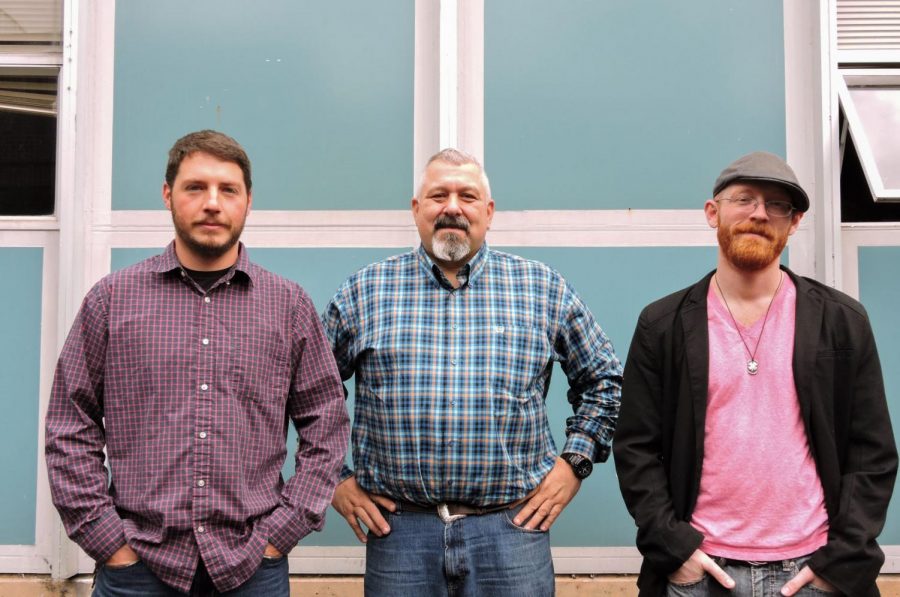OSU helps veterans transition to college
November 13, 2018
In order to fight feelings of loneliness and alienation in student veterans, multiple organizations around campus are working to ease the transition from military life to college life.
There are multiple resources available to Oregon State University veterans to help them integrate into college life. The military and veteran resource center, ASOSU coordinator of veteran affairs, the student veterans association and veteran certifying officials are some of the sources that veterans can reach out to to find out more about their available resources on campus. All aim to contribute to the success of veterans by helping navigate the requirements of higher education, find available benefits and ervices, as well as help connect veterans to other members of the community that are on the same path or facing the same challenges.
Many veterans face a difficult transition to college life, ranging from readjustment issues to recovery from physical and mental injuries. Oregon State’s veteran resource programs are doing everything in their power to make that adjustment easier on veterans.
“Veterans should not have to deal with months of loneliness and isolation. That tends to result in pretty high dropout rates. That’s why there are things such as Stack Up, which is a video gaming club directly pointed at veterans to build a community where people can feel involved and accepted,” said President of the Student Veterans Association, Anthony Minniti, a second-year student who served in the Navy as an electrician’s mate (nuclear) second class.
In the future, all partnering military and veteran resource programs are looking to centralize all resources to one common area. They want veteran resources to be easily accessible and easy to use. For now, however, the resources remain standalone.
According to the Military and Veteran Resource Center website, the MVRC in Snell Room 137 is the heart of the university support system, and is tailored to address the wide-ranging needs of OSU’s military and veteran community. This is where veterans can meet with the military and veteran resource adviser, Willie Elfering, who helps with everything from disability, tuition, general questions and even studying with tutors. Elfering also touches base with prospective students and their families, and connects students to the Oregon Department of Veterans Affairs and Benton county, who offer different services to military veterans.
“I unintentionally focus on prospective students because they tend to be in more need,” Elfering said. “When you’re in the service, you have all of these benefits but once you get out, there is nobody telling you where to go, how to find them or how to use them. So I try and fill that role,” he said.
OSU Ecampus Military-Connected students also have support to help guide them through their education. Ecampus Success Counselors aim to help with unique needs of the online student community. This kind of counseling provides strategies that support veterans and connects them to other academic and support resources.
Another helpful resource on campus is the ASOSU Coordinator of Veterans Affairs, Steven Olson, an advocate for student veterans at OSU and a third-year student who served in the US Army, works with student veterans, ROTC programs, committees and other organizations on campus to provide support and issue awareness for student veterans.
In accordance with the military and veteran resources website, the director is responsible for campaigning for veterans at OSU to ensure they are represented in their student government and advancing the interests and concerns held by student veterans. The coordinator of veteran affairs also acts as support for any student veteran to gather resources from and to be informed of current veteran benefits.
Olson said, “If there is any kind of issues or anything that is going on within their career here at Oregon State, my position serves as a kind of voice for veterans issues, comments and concerns.”
Olson understands well that the transition from the military to college presents additional challenges that non-veteran students may not have been faced with.
“That initial time of separation from the military can be an incredibly challenging moment for veterans because they’ve gone from being scrutinized in the military to being their own boss in higher education,” Olson said. “It’s really important to understand that because of the things that you have done in our military, there are support structures there for you when you separate and when you get out.”
In the registrar’s office, veterans can find officials who can assist with certifying classes, getting started with VA educational benefits, facilitating VA certification paperwork and answering financial questions associated with veteran VA benefits.
Alongside the MVRC, Ecampus success counselors, ASOSU veterans affairs coordinators and the veteran-certifying officials, the Student Veterans Association is a club that helps veterans transition into college and make friends by dedicating efforts to building a stronger community on campus.
Minniti, says that most veterans are not aware of all the school resources available to them.
“We’re wasting resources as a society when these people, who have already proven that they are capable, driven and willing to do work, are not informed about the resources they have available to them,” Minniti said. “Receiving their resources and benefits increases the quality of the veteran’s lives and allows them to really enjoy their college years.”
























































































































